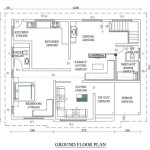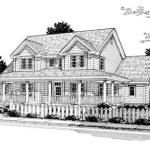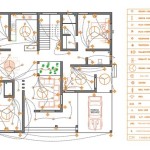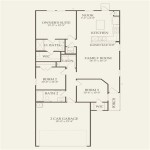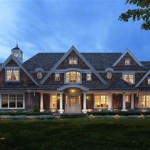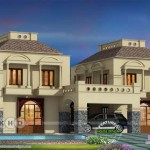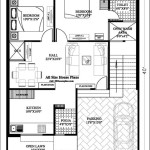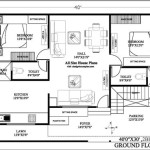Open Plan House Designs: Explore the Essential Elements
Open plan house designs have become increasingly popular for their spacious and modern feel. By eliminating walls and partitions, these homes create a free-flowing and interconnected living space. However, designing an effective open plan house requires careful consideration of several essential aspects.
1. Flow and Functionality
The flow of an open plan house is crucial for ensuring smooth and comfortable movement. The layout should allow for natural transitions between different areas, such as the kitchen, living room, and dining area. Consider the placement of furniture, traffic patterns, and natural light sources to create a cohesive and functional space.
2. Zoning and Definition
Even though open plan designs aim to create a seamless flow, it's essential to establish zones within the space to define different functions. This can be achieved through the use of furniture arrangements, rugs, changes in flooring, or architectural elements like half-walls or columns. Zoning helps organize the space and creates a sense of privacy.
3. Lighting and Ventilation
Natural light is a key aspect of open plan house designs. Large windows and skylights allow for ample daylighting, creating a bright and airy atmosphere. Proper ventilation is also crucial for maintaining a comfortable indoor environment. Strategically placed windows, doors, and fans ensure fresh air circulation and prevent stagnation.
4. Storage and Clutter Control
In open plan designs, minimizing clutter is essential for maintaining a sense of spaciousness. Built-in storage solutions, such as shelves, cabinets, and drawers, can help keep belongings organized and out of sight. Vertical storage, such as floor-to-ceiling bookshelves or double-height cabinets, can maximize space utilization.
5. Visual Connection and Continuity
Open plan designs emphasize visual connection and continuity throughout the space. Consistent flooring, finishes, and color schemes create a cohesive flow. Using similar materials and design elements in different zones helps maintain a sense of unity while still allowing for some division.
6. Acoustics and Privacy
With the lack of walls, sound can easily travel in open plan homes. To mitigate noise issues, consider using acoustic materials, such as carpets, curtains, or sound-absorbing panels. Creating separate zones for different activities can also help maintain privacy and minimize noise spillover.
7. Outdoor Connection
Open plan houses often feature large windows and doors that seamlessly connect the indoor and outdoor spaces. Patios, balconies, and gardens extend the living area outdoors, providing opportunities for relaxation and entertainment. Blending indoor and outdoor elements creates a larger sense of space and enhances the overall livability of the home.
By carefully considering these essential aspects, you can create an open plan house design that not only looks stunning but also functions seamlessly. The free-flowing layout, defined zones, and thoughtful integration of natural elements will result in a spacious, modern, and comfortable living space.

House Design Trends What S Popular In Cur Floor Plans Extra Space Storage

Open Floor Plan Concept Plans House The Designers

Classic House Plans Open Concept Floor

Modern Open Floor House Plans Blog Eplans Com

30 Gorgeous Open Floor Plan Ideas How To Design Concept Spaces

Translating Open Concept To Create An Inspiring Floor Plan Dc Interiors Llc

3 Bed Modern House Plan With Open Concept Layout 69619am Architectural Designs Plans

The Open Floor Plan For Your Home Beautiful Homes

Modern Open Floor House Plans Blog Eplans Com

The History Of Open Floor Design Interior Designers At Asheville S

